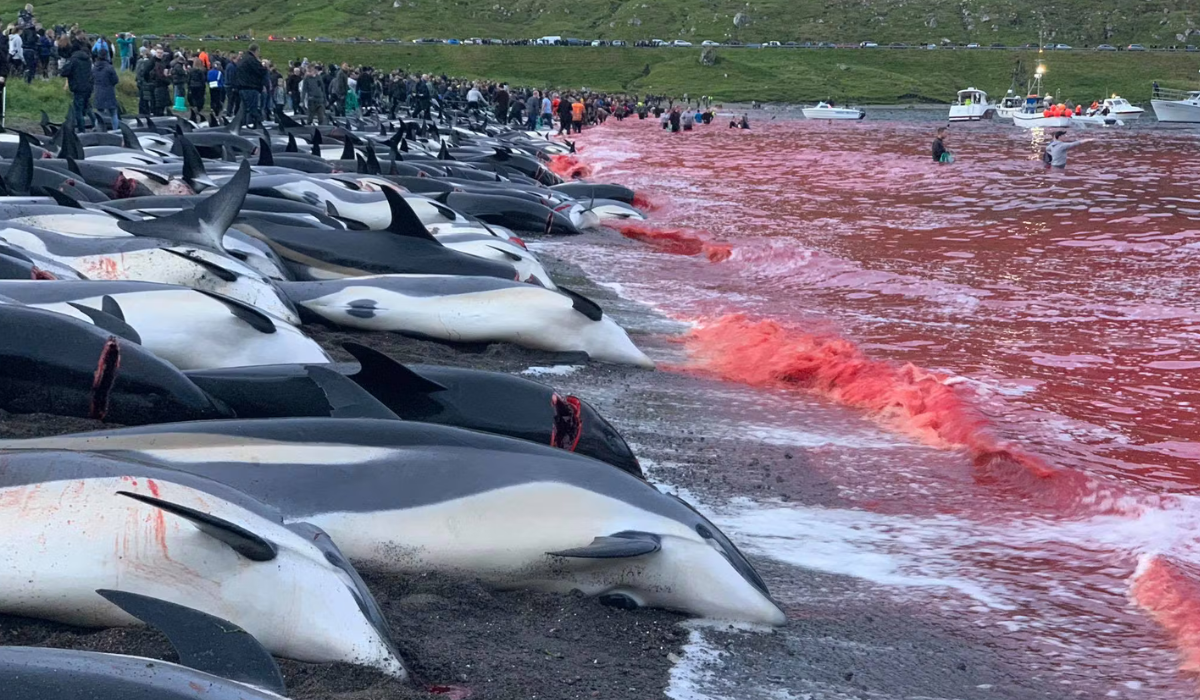
Dolphin hunting
Dolphin hunting is a practice in which dolphins are captured and killed for their meat, for use in traditional rituals, or in some cases for their capture in live shows and aquariums. This practice occurs in several countries, most notably in Japan, the Faroe Islands, and parts of Southeast Asia. The most infamous instance of dolphin hunting is in Taiji, Japan, where the annual dolphin drive hunt takes place. During this hunt, dolphins are driven into a cove by boats, where some are selected for sale to marine parks and aquariums, while the rest are killed for their meat. This method of hunting is highly controversial and has been the subject of international protests and documentaries such as The Cove (2009), which highlighted the brutal methods used in the Taiji hunt.
In the Faroe Islands, dolphin hunting is part of a centuries-old tradition called the Grindadráp. This hunt targets long-finned pilot whales and dolphins, with the animals driven ashore and killed by locals. Supporters of the practice argue that it is sustainable and forms part of the Faroe Islands' cultural heritage. Critics, however, have raised concerns about the cruelty involved and the potential for mercury contamination in the dolphin meat consumed by humans.
Dolphin hunting has been condemned by numerous environmental and animal rights organizations, including Sea Shepherd and the Whale and Dolphin Conservation Society. These groups argue that the practice is inhumane and that dolphins are highly intelligent animals with complex social structures. In response to international pressure, some countries have implemented restrictions or bans on dolphin hunting, but it remains legal in several regions.
Dolphin meat is consumed in certain cultures, though it has been linked to health risks due to the presence of mercury and other toxins in the meat. Despite these concerns, dolphin hunting persists in certain areas, driven by tradition, economic factors, and demand from the marine entertainment industry.
Stichworte







